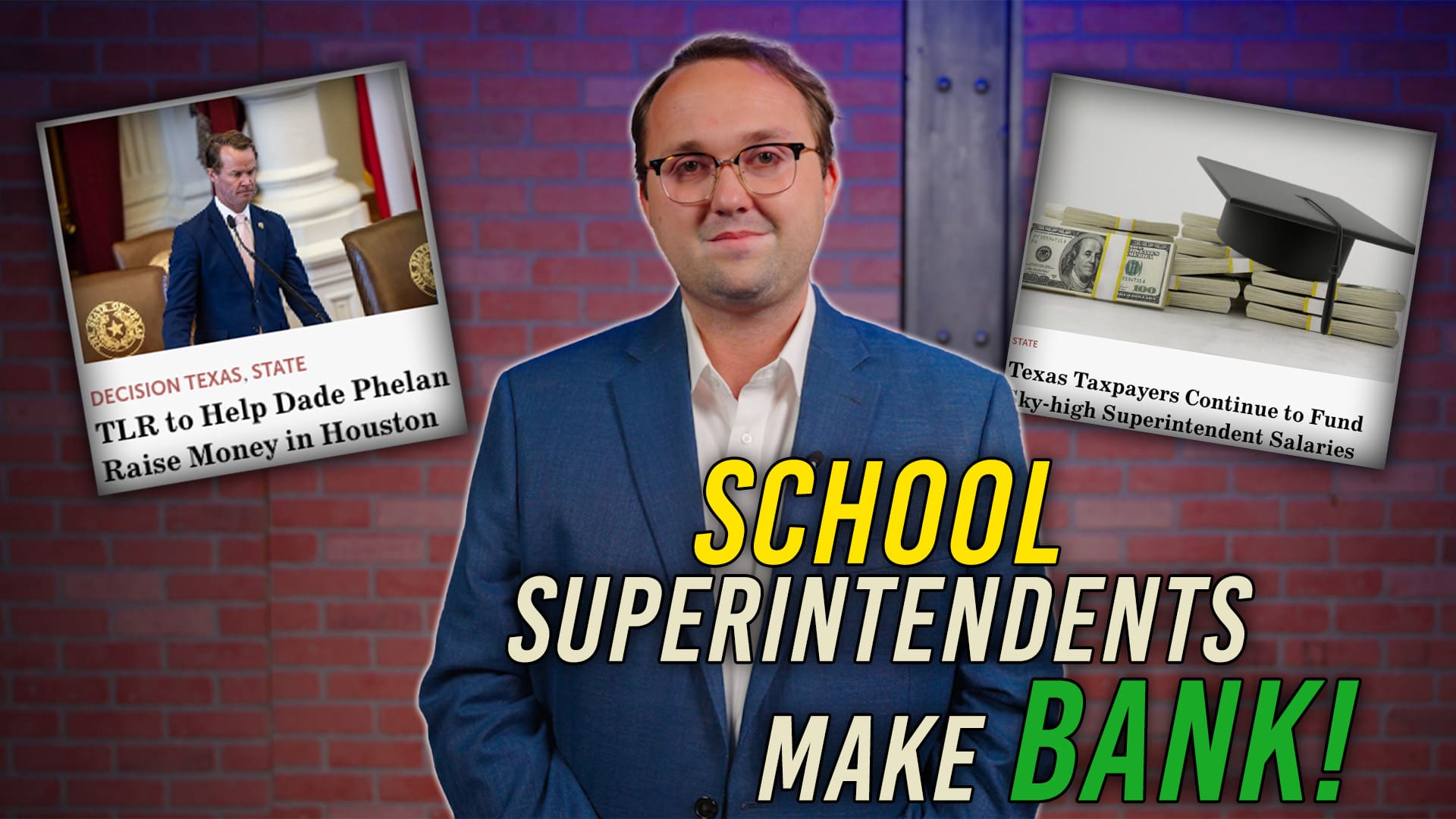During the regular session of 83rd Texas Legislature (and very prominently, during the debate over Senate Joint Resolution 2 in the first called session), the issue of how large of a balance the State should maintain in the Economic Stabilization Fund took front-and-center. It was Representative Van Taylor (R–Plano) that fought the hardest to maintain a healthy balance in the ESF. At numerous points he offered amendments to bills which would have required the state to maintain a balance in the ESF equal to seven percent of general revenue. Unfortunately, these efforts were defeated by the moderate and liberal establishment in the House, with some prominent legislators crassly suggesting that Representative Taylor didn’t have a basis for his numbers.
During the first special session, Senator Dan Patrick was successful in amending SJR 2 to guarantee that the diversions of revenue from the Economic Stabilization Fund proposed by the amendment would not take place if the ESF fell below $6 billion. This floor was later altered in the House to be one-third of the statutory maximum cap on the ESF. These provisions, while they would not have guaranteed a balance equal to 7 percent of general revenue, would have created a powerful incentive for legislators to keep the fund close to that number if they wanted to see oil and gas severance taxes go to transportation funding.
Now, HJR 2 and HB 16 are coming to the House Floor and don’t contain the same commonsense protections. So, why does protecting the ESF matter and why is it a problem if HJR 2 and HB 16 don’t contain protections for the ESF?
First, a healthy balance in the Economic Stabilization Fund is necessary to maintain the State’s credit rating. Contrary to the contentions of those crass legislators who suggested that Representative Taylor didn’t have a basis for wanting to maintain a balance in the fund equal to seven percent of revenue, Standard and Poor’s puts that number down in black and white on their website for the public and legislators to read. To receive Standard & Poor’s highest rating, states are asked to maintain a formal budget-based reserve relative to revenue or spending that is above 8 percent.
As anyone who has ever taken out a loan knows, a person’s credit score is important to getting a better interest rate. The situation is no different when it comes to state governments and the credit ratings assigned by organizations like Standard and Poor’s. It is worth noting that, contrary to popular belief—despite Texas’s economy—Standard & Poor’s does not give Texas an AAA rating, instead bestowing a AA+ rating on our state.
Second, with Texas’s chosen revenue structure and budgeting methods, a healthy reserve is a must. It is a wonderful thing that Texas chooses to fund its government with sales taxes instead of punishing work by imposing an income tax like the federal government and many other states. But it is a fact that sales revenues are much more volatile than personal incomes. During boom times, citizens have more disposable income and they make more purchases and end up paying more in taxes. But during economic downturns, they cut back and government sales tax revenue falls. This is particularly magnified because Texas doesn’t tax many of the essential goods—like food and medicine—that Texans tend to purchase regardless of the economic climate.
The problems associated with the volatility of sales tax revenue is expanded by Texas’ budgeting process. Legislators meet in every odd numbered year and, unlike other entities in the economy, they craft a budget for two years instead of just one. And that budget doesn’t go into effect for eight months after they first meet. To do this, the Comptroller is required to bring to the legislature the biennial revenue estimate, an estimate that necessarily relies on predicting how much sales tax revenue the state will bring in 32 months into the future.
We are all familiar with the 2008 financial crisis. One of the most prominent events in that crisis occurred on September 15, 2008, when the U.S. Federal Government allowed the investment bank Lehman Brothers to go bankrupt. Imagine trying to predict that event in January of 2006, 32 months prior, much less in January of 2007 as the Comptroller was actually required to do for the 80th Texas Legislature.
This is all disregarding the other major demands on the Economic Stabilization Fund such as disaster relief. It has been said that a glancing blow by a hurricane on the Port of Houston or Corpus Christi could cost the state upwards of ten billion dollars. In fact, the fires across the state last summer cost the state at least one billion dollars.
A healthy reserve in the ESF will help Texas weather the storms, both literal and economic, that we will undoubtedly face in the future. As HJR 2 and HB 16 come to the floor on Monday, legislators should consider what has gone on in Washington over the last five years when they are considering whether these bills should be amended to reinsert protections for the Economic Stabilization Fund. As Barack Obama’s Chief of Staff Rahm Emmanuel urged his fellow Democrats:
“You never let a serious crisis go to waste. And what I mean by that, it’s an opportunity to do things you think you could not do before.”
There can be little doubt that Emmanuel’s liberal fellow-travelers here in Texas would love nothing more than to deplete the Economic Stabilization Fund through frivolous spending and then use a future crisis—and do not believe there won’t be one—to pass tax increases and government supported gambling. If conservatives want to avoid these policy results they will find a way to guarantee that a healthy ESF is maintained. The first step towards protecting the ESF is by putting the floor that was placed in SJR 2 during the first called session into HJR 2 today.




